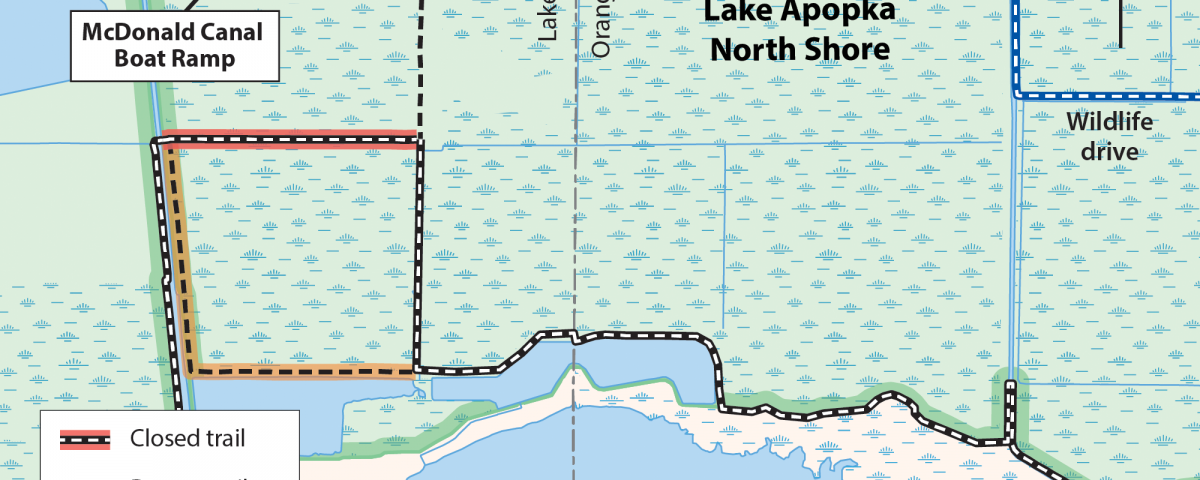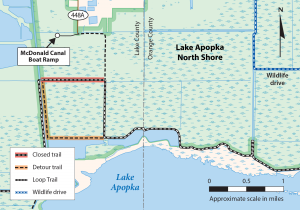Expect weekday construction detours on Lake Apopka Loop Trail

A portion of the Loop Trail will be closed intermittently for construction beginning March 15.
MAITLAND, Fla., March 12, 2021 — Recreational users of the Loop Trail at Lake Apopka will experience a detour beginning March 15 to allow for construction activities on the St. Johns River Water Management District’s Lake Apopka Duda Property Water Storage Improvement Project.
Hikers and bicyclists using the Loop Trail will be detoured around the construction zone, which will be intermittently closed to public access for safety. Visitors should use the marked detour, which at this time includes 1.5 miles of dirt and grass levee.
The public’s use of the Lake Apopka Wildlife Drive is not affected by the construction, which will continue through July 2021.
The North Shore’s levee system is more than just part of the District’s recreational loop trail as it also serves as separator between Lake Apopka and the North Shore. The District and partners have worked since the 1980s to improve the lake’s water quality and habitat, achieving significant improvements.
This important water resource protection project will enhance the lake’s already-improving water quality by storing more water on the North Shore and will improve the recovering wetlands’ habitat value.
Raising internal levee heights and constructing hydraulic improvements, such as sumps, culverts and slide gates, will separate the Duda property into four cells in which water levels can be independently managed. The project will allow additional water to be stored on the property, which will reduce pumped discharges and nutrient loads to Lake Apopka.
The project’s estimated total phosphorus load reduction to Lake Apopka is 390 pounds per year.
Since the late 1980s, the District’s work at Lake Apopka has resulted in phosphorus reductions of 64% while water clarity has increased by 55%. The recovery of clearer water and return of sunlight to the lake’s bottom has caused the regrowth of submerged aquatic vegetation, missing for 50 years, and critical to the continued increases in largemouth bass habitat.
To learn more about water quality improvement projects at Lake Apopka, visit www.sjrwmd.com/projects/#lake-apopka. For recreational announcements, visit www.sjrwmd.com/lands/recreation/announcements.


